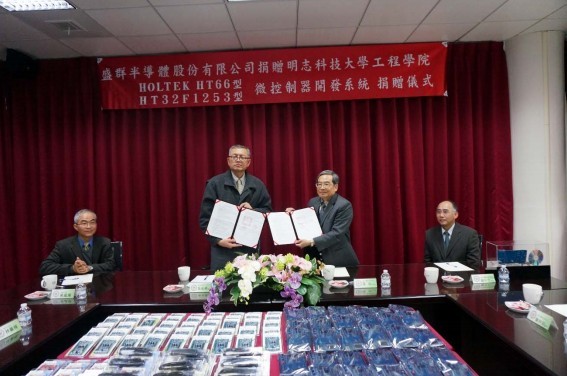I. Planning Department-Based Curricula
-
In alignment with the current industrial structure and the department’s areas of focus—namely "Computer Systems" and "Microelectronics"—industry professionals are invited to participate in the curriculum planning process.
-
Representative job titles are selected from related positions in the electronic engineering field, such as Electronic Engineer, ICT System Engineer, Semiconductor Process Engineer, and IC Design and Layout Engineer.
-
Curriculum standards, frameworks, and processes are developed to meet future industry-academia talent cultivation needs, enhance teaching quality, and improve the university’s competitiveness.
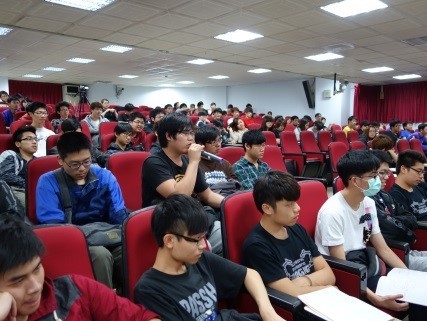
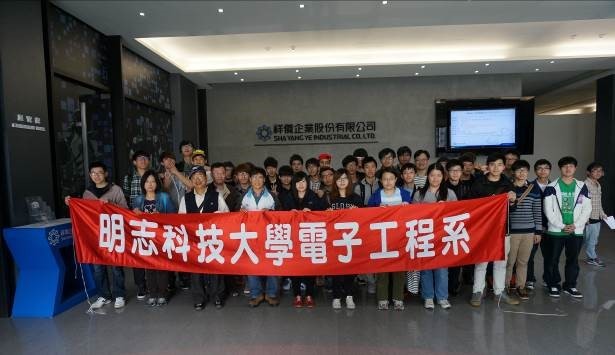
II. Development of Specialized Fields
-
The System Field features specialized programs in Electronic Circuits, Digital Circuit Systems, Computer Programming, Microprocessors, Embedded Systems, Electronic Instrumentation Practice, and Cloud Networking Practice, aiming to train students to become system engineers with both software and hardware capabilities.
-
The Microelectronics Field focuses on specialized programs such as Solid-State Electronics, Optoelectronics Engineering Practice, Semiconductor Engineering, Semiconductor Manufacturing Processes, Integrated Circuit Design and Layout, Semiconductor Packaging, and Semiconductor Testing. The goal is to train students to become optoelectronics semiconductor process engineers and IC design and layout engineers.
III. Strengthening General Education Courses and Core Competencies
-
In addition to required professional general education courses such as Engineering Ethics and Professional Practice Seminars and Smart Living Seminars, these courses equip students with strong moral character, workplace ethics, and communication and coordination skills.
-
Beyond enhancing students' professional capabilities, to meet the diverse needs of society, courses have been designed to improve students' general competencies in areas such as language skills, communication and coordination abilities, a broad global perspective, and humanistic literacy. The courses include: The Great Learning, Service Learning, Chinese Literature, English, English Listening and Speaking, History, Constitutionalism and Development, as well as a minimum of four additional general education elective courses.
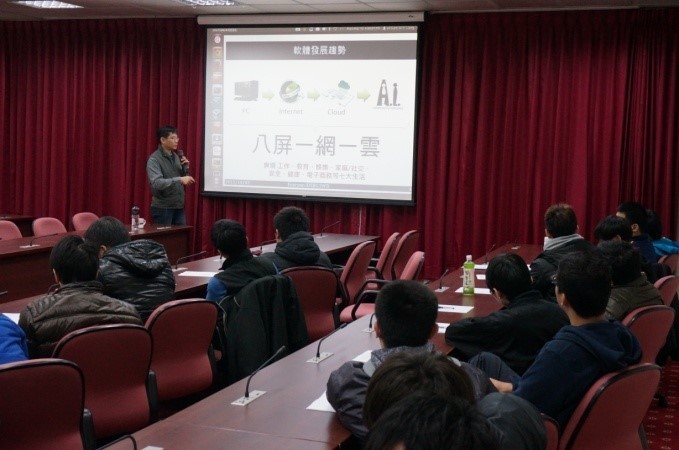
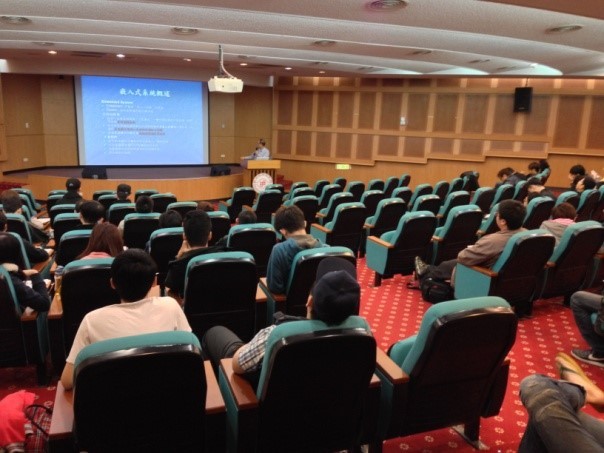
IV. Establishing Talent Cultivation Programs
The "Solid-State Lighting Technology and Applications" Module for talent cultivation in the Science Park integrates equipment and teaching resources from Chang Gung University and National Taiwan University. It collaborates with industry and academic partners such as Nan Ya Photonics, Fair Friend Group (FFG), SignalTek, Tenstorrent, Unimicron Technology, the NanoElectroMechanical Systems Research Center at National Taiwan University, the Electronics Testing Center, and the Intellectual Property Office of the Ministry of Economic Affairs. The curriculum is designed with a focus on the specialized skills required by engineers in the solid-state lighting and optoelectronic application industries. It targets junior, senior undergraduate students, and graduate students, strengthening their professional skills in solid-state lighting, optoelectronic engineering technologies, and patent awareness. The course content aligns with industry needs and student competency enhancement through project-based learning, along with arranged industry internships to validate students' acquired knowledge. Upon completing the module, technology university graduates will possess fundamental professional knowledge and technical skills, enabling them to immediately contribute to the workforce and increasing their employment opportunities. This program enhances the quality of human resources in Taiwan's optoelectronic technology industry and bolsters the international competitiveness of Taiwan’s optoelectronics industry.
V. Key Development Areas of the Department
-
The department currently focuses on two specialized fields: Computer Systems and Microelectronics. Through core courses that emphasize practical training and internships, students are nurtured to become professional talents in design, manufacturing, and maintenance in related industries. Additionally, the department places great importance on cultivating students' general education, character development, and language proficiency to shape well-rounded individuals with strong potential for future growth. Systematic curricula have been planned for these specialized fields, and related laboratories and research facilities have been established, such as: the Electronic Circuits Laboratory, High-Speed Networking Laboratory, Microprocessor Laboratory, Computer Engineering Laboratory, Embedded Systems Laboratory, Digital Signal Processing Laboratory, IC Design and Layout Laboratory, Semiconductor Measurement Laboratory, Clean Room, Photolithography Room, Optoelectronics Engineering Laboratory, and Anechoic Chamber, among more than ten professional laboratories, providing a comprehensive training environment. Faculty members regularly organize field trips to help students gain a deeper understanding of the industry landscape and the strong correlation between the department’s educational goals and employment demands.
-
Concentrating limited resources on key technological research is an active strategy adopted by the department in response to the objective environment. The department has launched large-scale interdisciplinary research projects to elevate research and development standards. Integrated key research laboratories, such as the Micro Systems and Medical Industry Research Center and the Location-Based Services (LBS) Application Research Center, have been established in collaboration with other departments within the university. Additionally, the department has integrated resources from the Mechanical Engineering, Management, and Industrial Design departments to apply for the Ministry of Education’s Featured Project funding and the National Science Council’s three-year integrated project to enhance the research and development capabilities of private universities, focusing on themes such as "Technology Development and Application Research of Value-Added Business Models for Tourism Communities" and "Framework Construction and Practical Application of In-Vehicle Information and Communication Advertising Service Systems."
-
The partnership between academia and industry is mutually beneficial, with industry providing funding to cultivate the talent required by the sector. The department’s Embedded Systems Laboratory, Computer Engineering Laboratory, and Electronics Laboratory have each received various donations from companies to support education and training. For example, Holtek Semiconductor Inc. donated 60 microcontroller development boards and programming devices, valued at approximately 850,000 NTD; Xilinx Inc. donated 30 sets of Xilinx System Board Development Software Tools (EF-ISE-SYSTEM-FL), with an estimated value of 5.14 million NTD; Texas Instruments donated 30 sets of MSP430 microcontroller teaching development boards, 20 ASLK (Analog System Lab Kit PRO) units, and development software worth approximately 470,000 NTD; and Freescale Semiconductor donated 30 sets of FRDM-KL25Z development teaching boards and tool software, along with 10 sets of Freescale Cup Car Kits (TFC-KIT), with a total value of around 1 million NTD.

